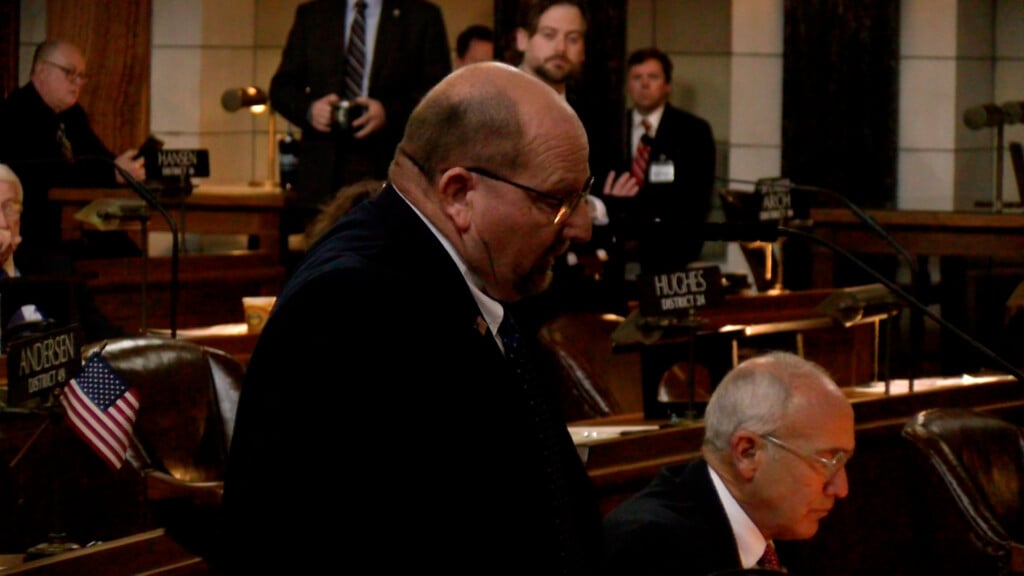Nebraska Supreme Court interpreters walk out as a ‘last resort’ to stagnant wages
LINCOLN, Neb. (KLKN) – For more than eight years now, Nebraska Supreme Court interpreters have been asking for a raise in their wages.
After failed negotiations, many interpreters walked out on Monday.
“This will continue until we get what we think is right,” said Pamela Duncan, an American Sign Language interpreter.
Frankie Macgregor, a Spanish interpreter, said interpreters’ wages have been the same for nearly 20 years.
“It’s pretty egregious that we haven’t had a wage increase since 2004,” she said. “So I think drawing attention is our last resort.”
Nebraska Supreme Court Administrator Corey Steel told Channel 8 that for now, the court schedule is still continuing as planned.
“Right now we have assessed only about half of the registered interpreters with the Judicial Branch have determined not to take assignments,” he said in a statement.
Steel said the court system is able to remotely call interpreters if they are unable to get one in person.
Right now, non-certified interpreters are paid $35 an hour, and certified interpreters are paid $50 an hour.
But Duncan said they have to renew their certifications yearly and also pay for insurance and travel, which can cost thousands.
She said with those deductions, she’s making about $20 an hour.
“I could, frankly, go work somewhere else and make a whole lot more money and have a lot less stress,” Duncan said. “But what happens at that point is that our court system and our judicial system is then without the skilled, certified interpreters that it needs.”
So interpreters are asking for their pay to be increased to $60 an hour for non-certified interpreters and $85 an hour for those who are certified.
Steel said the Supreme Court did decide to increase interpreters’ wages starting July 1.
Sign language interpreters will receive $75 an hour, and certified language interpreters will receive $65 an hour.
“This rate increase may not be currently what interpreters are asking for and it will come at a cost to the Judicial Branch, but it is a step in the right direction,” Steel wrote in a memo.
Channel 8 spoke with seven interpreters, who all said they won’t go back, despite this compromise.
Duncan said they’re more upset on behalf of the citizens who won’t be getting the quality interpreters they deserve.
“I think what’s being overlooked is the value of these citizens and their due process,” she said. “And I think that’s the value that you can’t really put a number on.”
Vladimir Bazan, another Spanish interpreter, said they won’t give in.
“We’re going to stay together, we’re going to keep fighting this until we’re compensated as professionals because that’s what we are,” he said.
Sen. George Dungan introduced a bill to help the justice system fund the increased wages.
It would have given them $200,000.
The bill passed, but Gov. Jim Pillen vetoed it.
Duncan said it was because Pillen determined the Supreme Court already had sufficient funds to increase wages.



